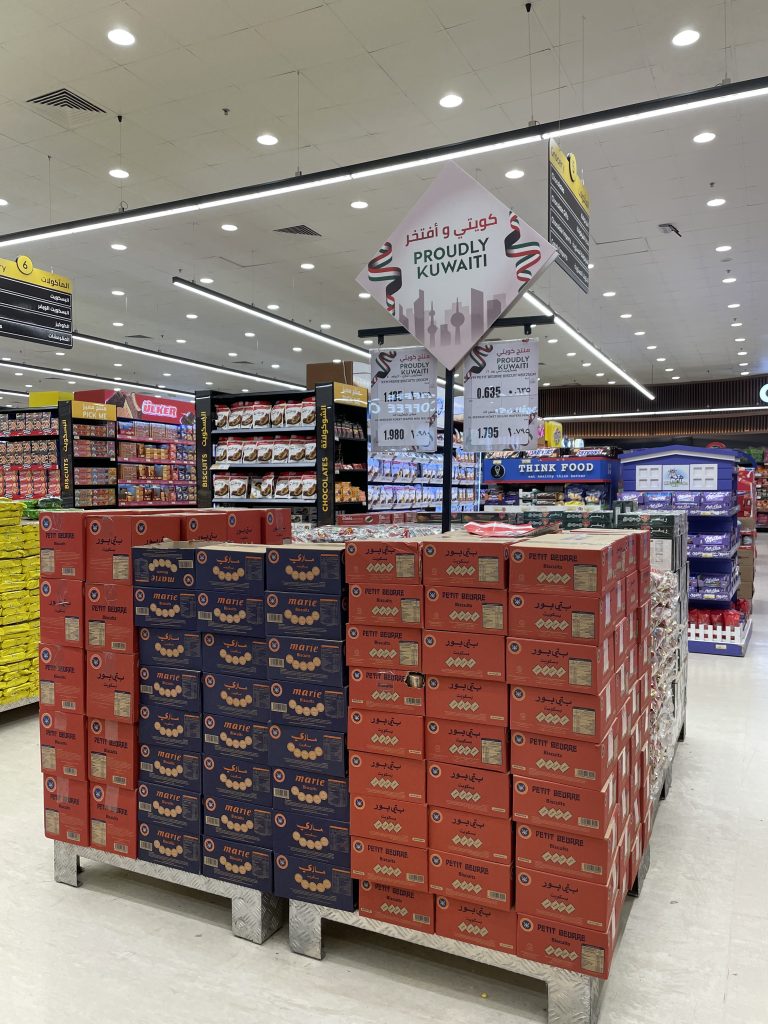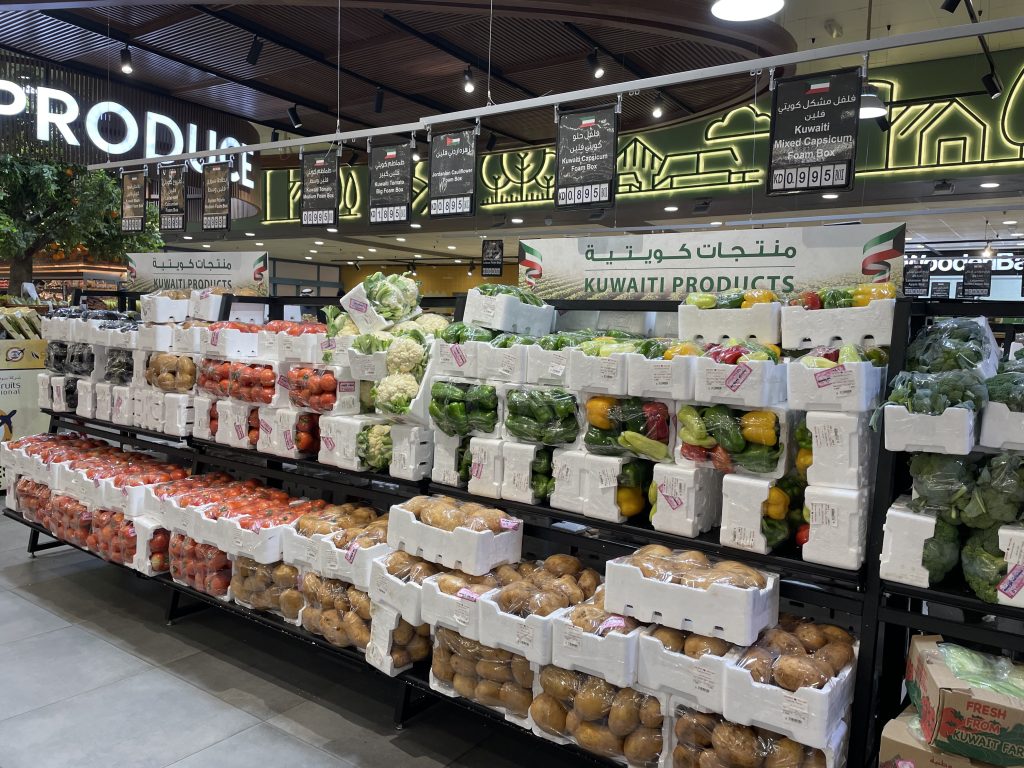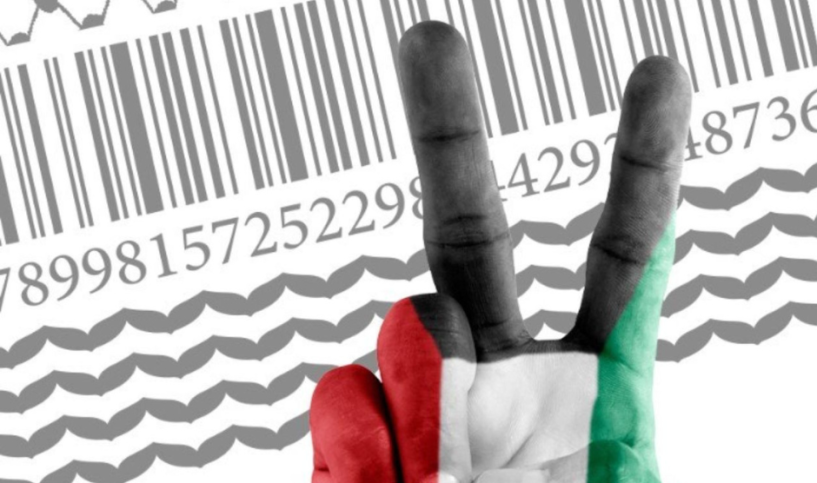By Yasmin Mostafa
The term boycott is not new to the cultural landscape, nor was it ever an empty threat intended to be thrown around at businesses. Boycotting is an effective means of protesting. The term was first coined in the late 1800s after Captain Charles Boycott, against whom the Irish (Land) League’s boycotting tactic was used to successfully eliminate the concept of landlords in Ireland, finally enabling farmers to own the lands they worked so hard for with their sweat, blood, and tears.

Over the past two months, we’ve heard “boycott” used on major social media platforms calling for the boycott of companies that are complicit and directly or indirectly involved in the settler colony state massacres in Palestine. The list of brands owned by Zionist individuals or entities has gone viral due to people’s passion and heartfelt desire to bring an end to massive violations of human rights in Palestine.
The circulation of these boycott lists helps people feel empowered, their buying decisions held accountable, and creates a sense of belonging when participating as a united front in bringing an end to this apartheid regime. Today, boycotting may be considered one of the few strong means for consumers that exists to create pressure, apart from protesting, amid overwhelming feelings of guilt and helplessness in the face of the unfolding horrors on our screens.
Our rich history on this planet is dotted with many successful boycotts and has contributed to undeniably progressive social changes, political changes, and essential shifts on the ethical business spectrum. If the history of boycotts can tell us anything, it tells us that with strategy and selective targeting, they work.
A more recent example is the boycott campaign attributed to the Palestinian Boycott, Divestment and Sanctions (BDS) Movement. Continued, targeted boycott of General Mills, the Parent Company of Pillsbury [which owns many products on shelves in consumer markets in our region] led to the company selling its stake in a joint venture with the settler colony state of Israel manufacturing its products on occupied territories; a victory in 2020.

The BDS Campaign is a movement for Palestinian Justice and Rights that launched in 2005 to boycott, divest, and call for economic sanctions against companies identified as most complicit in the zionist entity’s abuses in violence against Palestinian innocent civilians. BDS calls for the international community to put pressure on politicians and international governments across the world to hold Israel accountable for its Human Rights violations, and for ignoring international law such as the Geneva Convention, and ignoring a string of UN Resolutions calling for the ebbing of the spread of illegal settlements in the occupied territories. You can stay updated about the BDS Movement boycott calls by following them online.
The BDS Movement highlights a selective, small list of companies to boycott to increase impact, targeting those companies that play a direct role in the spread of illegal settlements. Apart from the selective BDS Movement list, many consumers widely followed social media accounts after October 7. The social media documented the criminal response by Israel, massacring Palestinians and carpet bombing Gaza, resulting in a worldwide call for a boycott of all companies and brands that are complicit with Israel’s violations. While there are many global alternatives to these brands, there’s nothing like supporting our local community by putting our money into small local businesses, either family-owned or larger local businesses that serve Kuwait’s economy.
The local community has supported us in these boycotts by bringing to our attention the multitude of local brands and produce that our eyes have skimmed and skipped over for years to the familiar global brand logos we were used to picking up. In an amazing initiative by the CO-OP societies in Kuwait, they have launched local campaigns by highlighting in CO-OP entrances a dedicated center stage featuring all Kuwaiti local brands. This makes it easier for concerned customers to help familiarize themselves with the outstanding choices, quality, and many local brands available. Jabriya, Khaldiya, and Zahra are examples of CO-OPs who participated in this campaign last month with a beautiful display of local brands. Going one step further, the National Assembly is discussing severing business ties altogether with Zionist brands in CO-OPs all over Kuwait. What does this mean for us? By choosing to shop in any CO-OP you would automatically be shopping locally. Perfect.
Boycotts are liberating. They are a means of freeing us to choose from whom we identify or with whom we feel our values align. It also directs us to choose that which reflects our identities, our local Arab Middle Eastern heritages, or to bring attention to a heart-felt cause, injustice, and oppression of one ethnic group with a beautiful heritage, that has been going on for 75 years.
It’s wild how we’ve unintentionally supported brands for so long when our values did not align with the values of these companies, and how these brands have infiltrated our daily lives for decades. But the beauty of social media is that seeing the images from within Palestine has awakened huge numbers of people on an unprecedented level, and they are quickly becoming aware of the power of their wallets, learning to funnel their money into brands that support justice and human rights for all people.
I am proud to be in Kuwait. We have seen locally the emergence of people’s increasing boycotts of big companies and global brands, from food bloggers to influencers and local consumers that have sought to support what’s local in Kuwait on their pages. Thanks to several Kuwaiti public bloggers’ video reels that have helped people find alternatives for every industry.

For dining suggestions on going local, I recommend a few places for the best-tasting most crispy fried chicken. I love Jimmisbucket for its delectably distinctive smoked aioli, A’s chicken for their tasty spicy bucket, and Chicster has the most delicious chipotle pops and best of all each one is proudly Kuwaiti-owned. For those who are feeling nostalgic about a chicken bucket, A’s chicken bucket will satisfy those cravings. For local burger joints, letspatty.kw for their delicious mushroom and cheeseburgers, JustC for their truffle burger and barbeque box, and ingest.kw for their chimichurri aioli burger. For juice joints I love Woop!, most famous for its fresh avocado shakes and freshly squeezed juices. Thanks to Kuwait’s entrepreneurial minds, the local landscape in coffee, food, and fashion comes close to the international experience that consumers may be used to, if not better.
It is important to remember that for us to bring a real, long-lasting impact, boycotts are not meant to be short-lived. To sustain it, a long-term lifestyle change is needed. Only by supporting long-term boycotts, we can effectively take a real stance on justice, humanity, and moral values. Time and time again, the settler colony state of Israel has long relied in the past on our distraction and on being emotionally fatigued. This time it’s different. We will never forget, unlearn nor unsee any of these massacres or horrors happening in Gaza.
Long live peace and Justice, long live the power of the people and nations. And long live Palestine and the freedom of Palestinians.
To shop for verified global brands visit bdsmovement.net, whattoboycott.org, and bdnaash.com all dedicated websites aimed to guide people on which brands to boycott and why. Albadeel.on is a recent local initiative on Instagram suggesting local Kuwaiti and regional brands in place of global household brands or grocery items.








